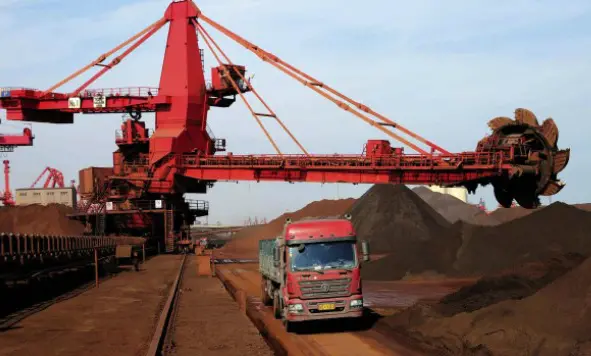Move to internationalise the market part of wider reforms.
Beijing pledged to take a substantial step forward to liberalise its commodity futures market by allowing foreign investors and domestic financial institutions to deal in contracts that bet on prices for crude oil, iron ore and rubber.
Fang Xinghai, a vice chairman at the China Securities Regulatory Commission (CSRC), told a forum hosted by the Shanghai Futures Exchange in Shanghai on Wednesday that it was necessary to internationalise the futures market as China’s economic might increases worldwide.
Futures are financial contracts obligating the buyer to purchase an asset — or the seller to sell an asset— such as a physical commodity or a financial instrument, at a predetermined future date and price.
Growing calls by foreign firms to trade on the mainland’s market have to be noticed by the regulator and an opening-up of the market would also be part of efforts to deepen the country’s supply-side reforms, Fang, a technocrat known for his reformist outlook and a key advisor over Chinese President Xi Jinping’s economic policies, said.
Fang said that commercial banks, in order to better serve their high-net-worth clients, would be encouraged to trade commodity futures as a way to hedge risks and allocate assets.
It was a clear message by the regulator that Beijing was standing firm on opening-up and liberalising markets, despite the roller-coaster rides on the stock market last year that sparked worries the CSRC would slow the reform process in order to maintain stability on securities markets.
China has yet to launch its — long-heralded — crude-oil futures trade on a subsidiary of the Shanghai Futures Exchange, which aims to gain pricing power over the key commodity to overseas oil firms and traders that are invited to participate in dealing.
Currently, the mainland’s commodity futures market is off-limits to foreign investors.
Only locally-registered, non-financial, firms are allowed to trade mainland-listed futures via brokers.
Fang’s remarks were seen as a fresh sign that the new CSRC regulators were taking a supportive stance on reforms, even after putting on hold a series of planned liberalisations.
In March, Agricultural Bank of China chairman Liu Shiyu replaced Xiao Gang to take the helm of the securities regulator, which was tasked with shoring up investor confidence in a weak stock market.
The CSRC recently abandoned its plans to establish a new board for emerging industries and delayed the implementation of a registration-based initial public offering system. That triggered fears that the new regulators would back-peddle on their market-based reforms.
Fang, a former bureau director at the Central Leading Group for Financial and Economic Affairs — and a key figure behind Shanghai’s ambitions to become a global financial centre — was promoted to become a CSRC vice chairman late in 2015.
He said that a developed and internationalised futures market was of great importance to China’s supply-side reforms because it helped find reasonable and market-based prices.
(SOUTH CHINA MORNING POST)
 简体中文
简体中文



